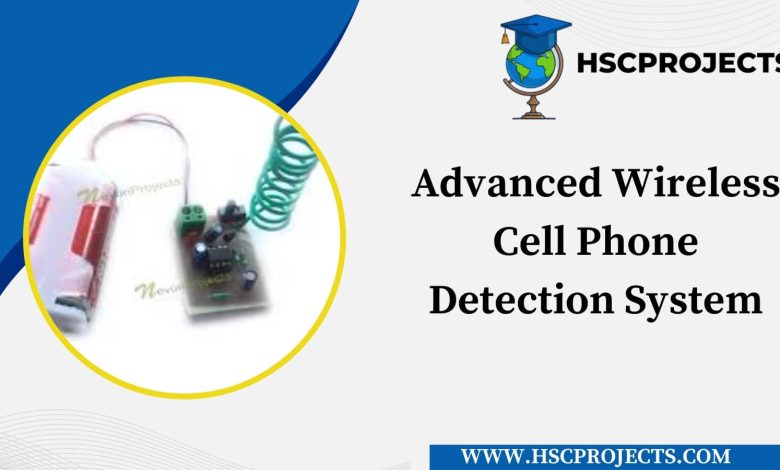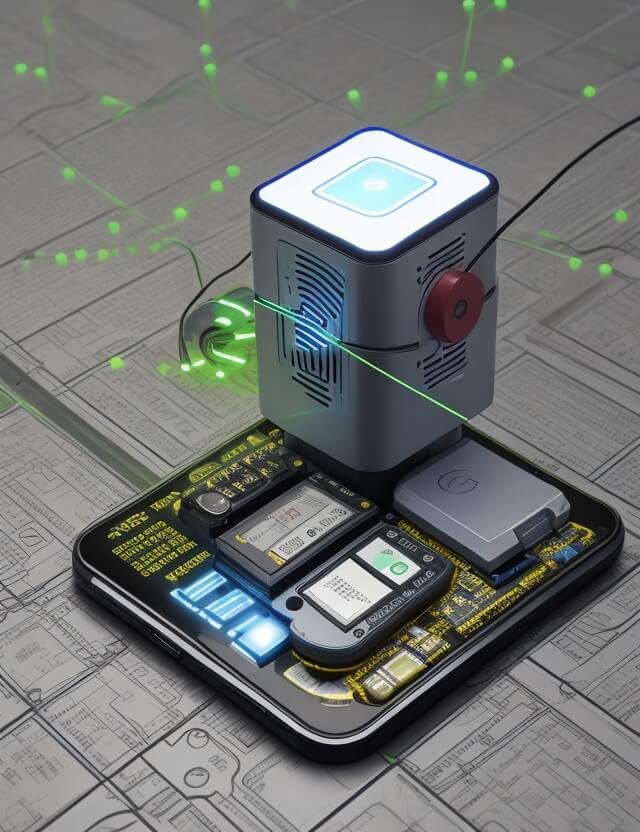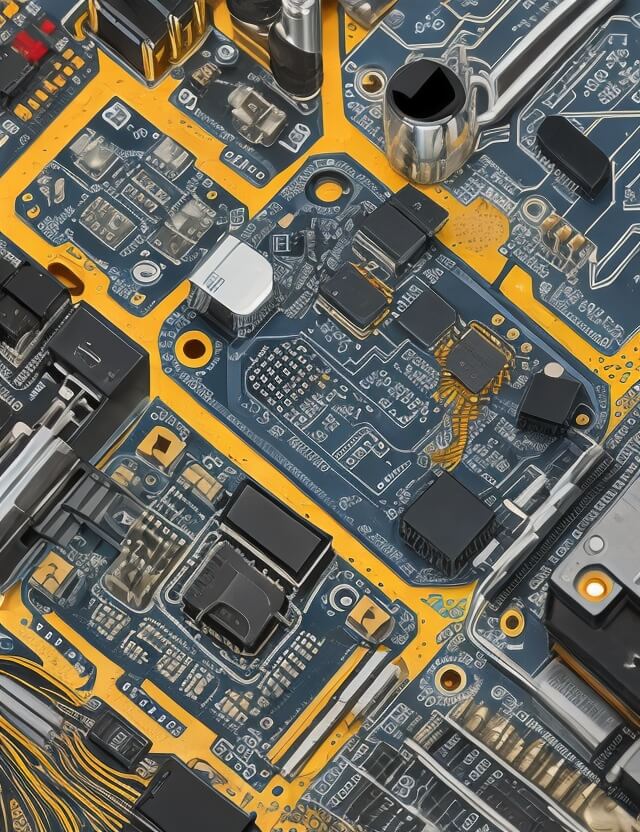
Advanced Wireless Cell Phone Detection System
Introduction
In today’s world, the security and integrity of certain environments like examination halls and high-security zones are paramount. The Advanced Wireless Cell Phone Detection System is a sophisticated solution designed to detect and indicate the presence of active cell phones in these sensitive areas, helping enforce rules and maintain the desired decorum.

How It Works
- Frequency Detection: Cell phones, when active, emit frequencies ranging from 0.9 GHz to 3 GHz. The system is designed to detect these specific frequency ranges.
- Signal Interception and Indication: Upon intercepting an active cell phone signal, the system amplifies this signal and uses it to light up an LED, clearly indicating the presence of the device.
- Penetration Capability: The cell phone’s frequencies can penetrate various materials, meaning the system can detect devices even if they are hidden within bags, clothing, or other small containers.
Technical Specifications
- 555 Timer IC: Used for creating the necessary oscillations in the circuit.
- Amplifier Circuit: Amplifies the cell phone signals for detection.
- Visual Indicator (LED): Lights up when an active cell phone is detected.
- Power Supply: Battery operated for portability and ease of deployment.
- Additional Components: Resistors, capacitors, transistors, diodes, and more for the complete circuit assembly.
Advantages
- Security Enhancement: Assists in maintaining a cell phone-free environment in secure or restricted areas.
- Ease of Use: Portable and easy to operate, making it suitable for various scenarios.
- Stealth Detection: Capable of detecting hidden cell phones, ensuring comprehensive security checks.
Conclusion
The Advanced Wireless Cell Phone Detection System represents a leap forward in maintaining the sanctity and security of sensitive environments. By effectively detecting active cell phones, it assists in enforcing rules in examination halls, meeting rooms, and other secure areas, ensuring that no unauthorized communication or disruptions occur.

Sample Code
const int signalPin = 2; // Pin connected to the output of the signal detection circuit
const int ledPin = 13; // Built-in LED on Arduino
const int buzzerPin = 12; // Pin connected to the buzzer
void setup() {
pinMode(signalPin, INPUT); // Set the signal pin as input
pinMode(ledPin, OUTPUT); // Set the LED pin as output
pinMode(buzzerPin, OUTPUT); // Set the buzzer pin as output
Serial.begin(9600); // Start serial communication for debugging
}
void loop() {
int signal = digitalRead(signalPin); // Read the signal from the detection circuit
if (signal == HIGH) {
// If a signal is detected (assuming the circuit is active HIGH)
digitalWrite(ledPin, HIGH); // Turn on the LED
digitalWrite(buzzerPin, HIGH); // Turn on the buzzer
Serial.println("Cell Phone Detected!");
} else {
// If no signal is detected
digitalWrite(ledPin, LOW); // Turn off the LED
digitalWrite(buzzerPin, LOW); // Turn off the buzzer
Serial.println("No Cell Phone Detected.");
}
delay(100); // Wait for 100 milliseconds before reading again
}
In order to download the PDF, You must follow on Youtube. Once done, Click on Submit
Follow On YoutubeSubscribed? Click on Confirm
Download Advanced Wireless Cell Phone Detection System PDF






